9 Best Fyodor Dostoevsky Books – ‘The Idiot’, ‘Crime and Punishment’ And More…
Fyodor Dostoevsky is a 19th-century Russian writer. He is often known as “the father of psychological fiction.” His books are like deep oceans, full of complex characters and tough questions about life and the human soul. He didn’t just tell stories. He dug into the hearts of his characters, creating some of the best Fyodor Dostoevsky books ever written.
From the intense drama of Crime and Punishment to the pure-hearted Prince Myshkin in The Idiot, his characters are unforgettable. His books throw puzzles that make you think and feel everything you know. At one point, you will laugh. At another, you will cry.
Whether you’re new to Fyodor Dostoevsky novels or re-reading them, these nine books will be intriguing for anyone. Let’s grab a cappuccino, sit on a comfy sofa, and read them.
9 Best Fyodor Dostoevsky Books:
1. Crime and Punishment

“Pain and suffering are always inevitable for a large intelligence and a deep heart. The really great men must, I think, have great sadness on earth.”
― Crime and Punishment
One of Dostoevsky’s most famous novels is Crime and Punishment. It follows the story of Raskolnikov, a desperate former student who formulates a plan to kill a pawnbroker to diminish his financial woes. The Crime and Punishment novel explores the themes of guilt and redemption that arise from Raskolnikov’s actions.
Through his internal conflicts, Dostoevsky examines the possibilities of atonement.
2. The Brothers Karamazov
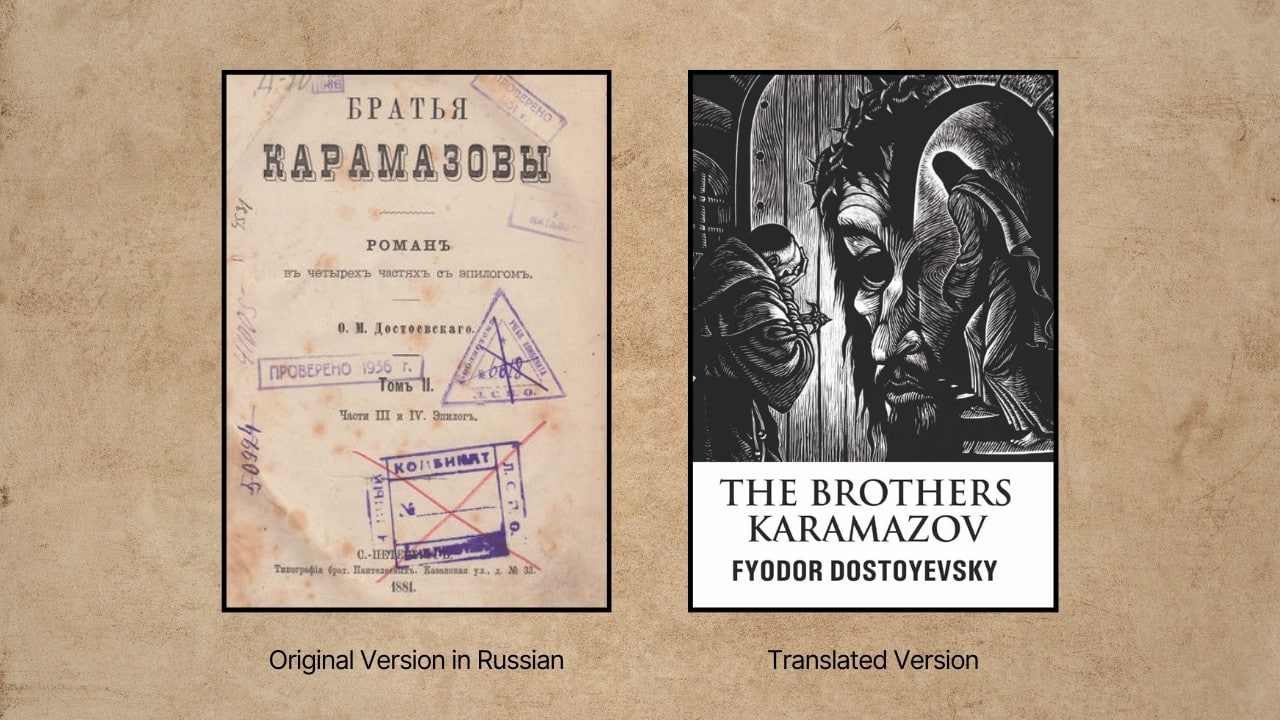
“Above all, don’t lie to yourself. The man who lies to himself and listens to his own lie comes to a point that he cannot distinguish the truth within him, or around him, and so loses all respect for himself and for others. And having no respect he ceases to love.”
― The Brothers Karamazov
Dostoevsky’s final novel, The Brothers Karamazov, is a philosophical drama that explores deep ethical questions.
The story revolves around the Karamazov family, particularly the relationship between the three brothers – Dmitri, Ivan, and Alyosha – and their father, Fyodor. Themes of faith, doubt, and the nature of free will are woven into narrations, making it one of the great novels of Dostoevsky. This is also among the best Dostoevsky books to start with, as it provides a profound explanation of human morality and spirituality.
3. Notes From Underground
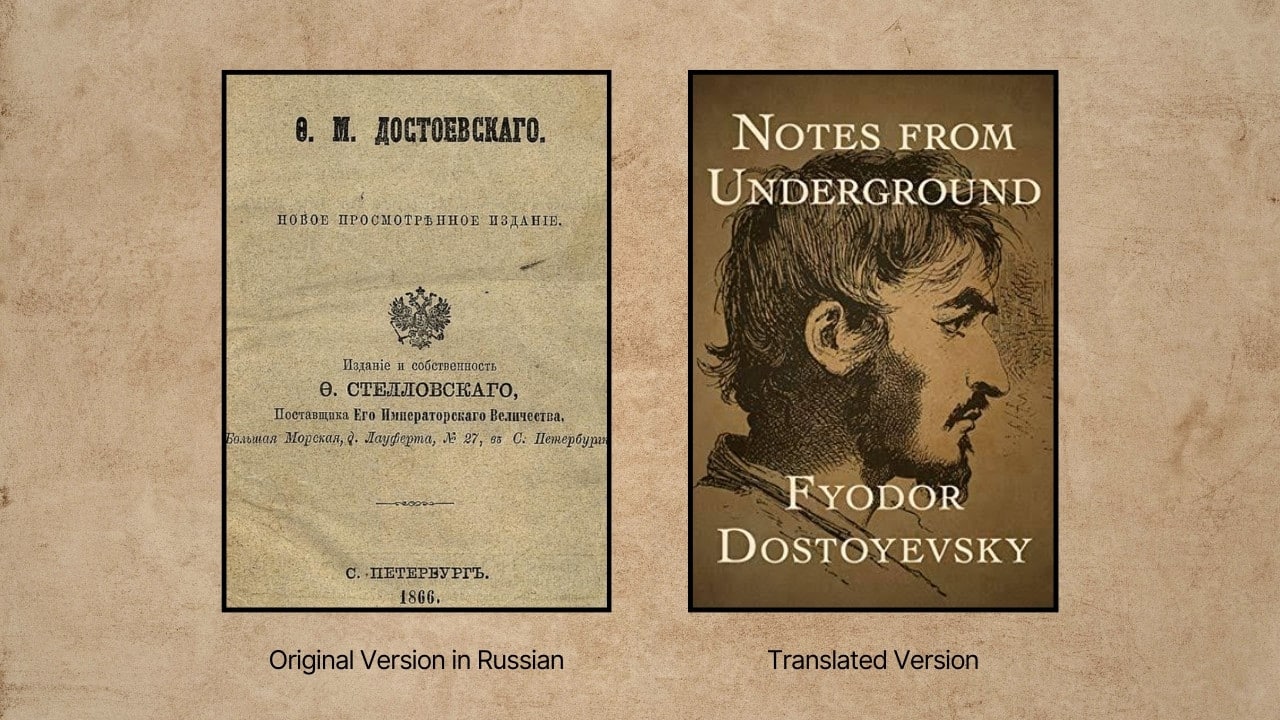
“Talking nonsense is the sole privilege mankind possesses over the other organisms. It’s by talking nonsense that one gets to the truth! I talk nonsense, therefore I’m human”
― Fyodor Dostoevsky, Notes from Underground
In Notes from Underground, Dostoevsky presents a protagonist who is a retired civil servant living in isolation in St. Petersburg. The narrator’s self offers a series of egoism and the limitations of human reason. This novel delves into the psychological conflicts of a man who rejects societal norms and struggles with his own identity and purpose.
4. The Idiot
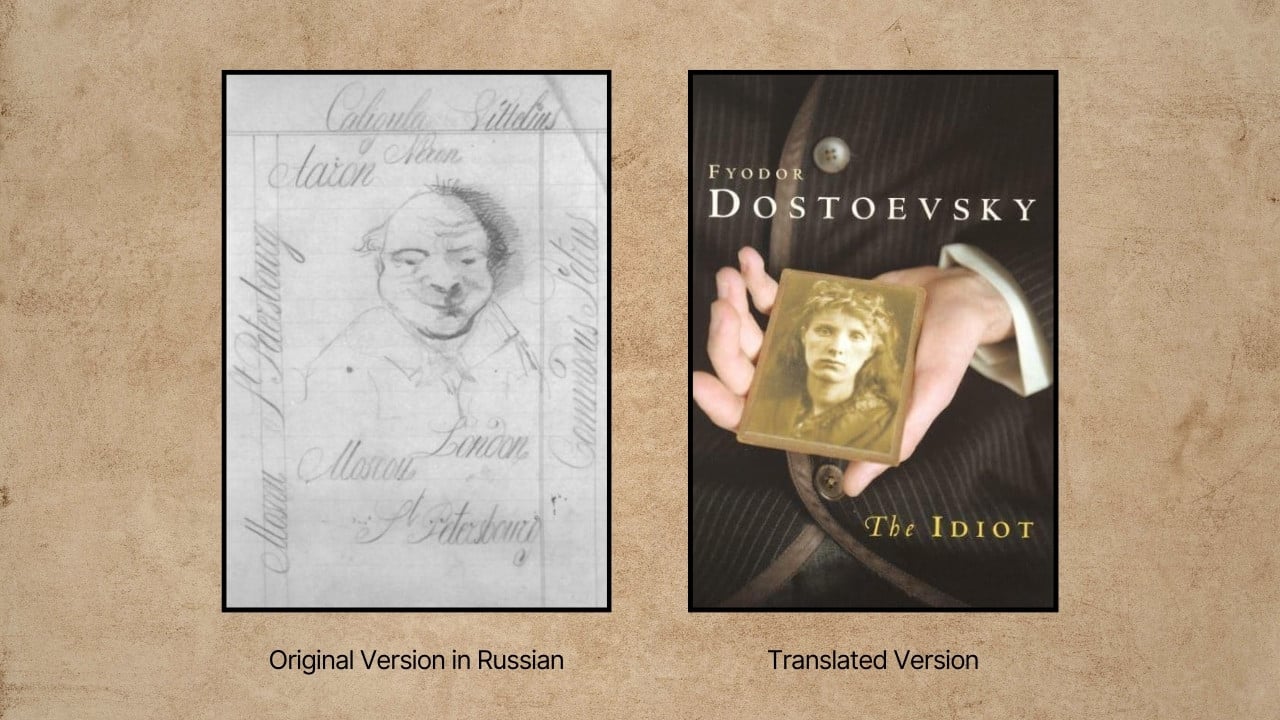
“I am a fool with a heart but no brains, and you are a fool with brains but no heart; and we’re both unhappy, and we both suffer.”
― The Idiot
The Idiot tells the story of Prince Myshkin, a man whose innocence and goodness grapple with the corruption and cynicism of the society around him. Myshkin’s interactions with the other characters highlight themes of human suffering, the search for authenticity, and the clash between idealism and reality.
The novel provides a clear picture of what it means to be a good person in a flawed and corrupted world.
5. Demons
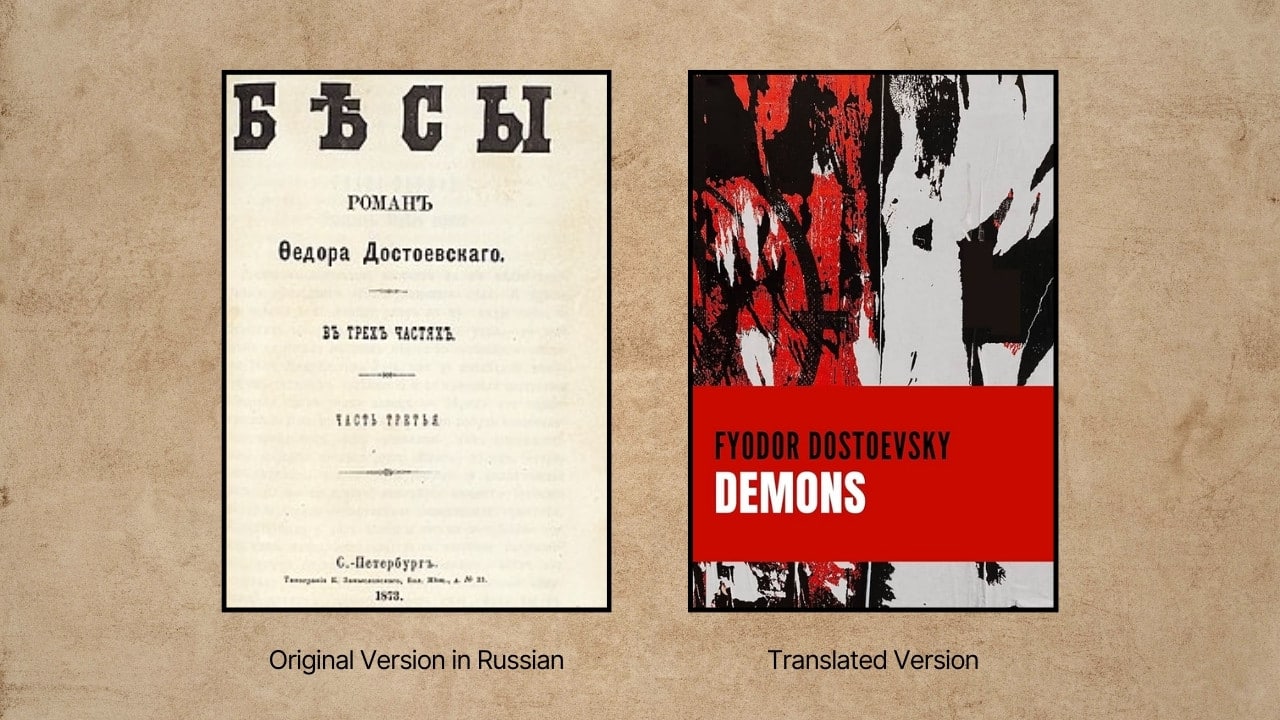
“I do not wish you much happiness–it would bore you; I do not wish you trouble either; but, following the people’s philosophy, I will simply repeat: ‘Live more’ and try somehow not to be too bored; this useless wish I am adding on my own.”
― Demons
Demons, also known as The Possessed, is a political novel that explores the rise of radicalism in 19th-century Russia. Through a complex web of characters, Dostoevsky portrays the destructive effects of extremist ideologies.
Also Checkout – The 9 Best Detective Books Of All Time
6. The House of the Dead
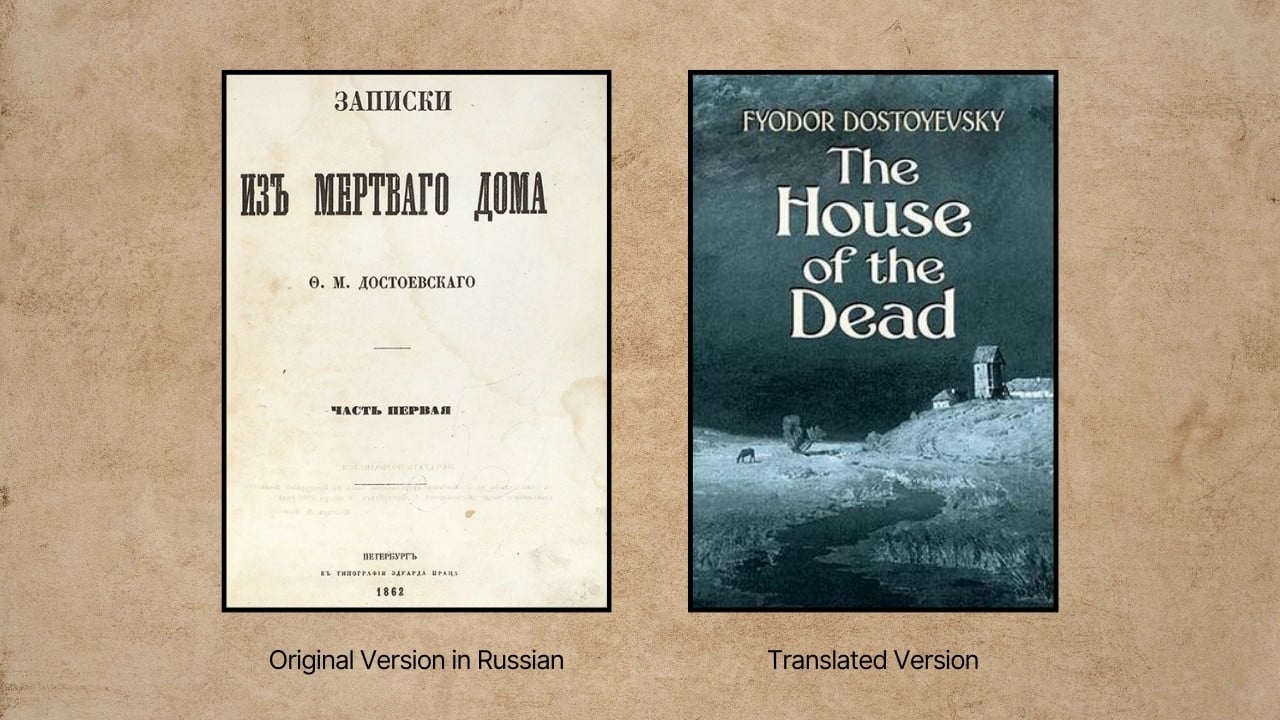
“No man lives, can live, without having some object in view, and making efforts to attain that object. But when object there is none, and hope is entirely fled, anguish often turns a man into a monster.”
― The House of the Dead
Based on Dostoevsky’s own experiences in a Siberian prison camp, The House of the Dead provides a harrowing account of life in exile.
The novel portrays the brutality of the prison system while also highlighting moments of compassion and solidarity among the characters. It’s a powerful critique of the justice system and one of the essential books written by Fyodor Dostoevsky.
7. The Gambler
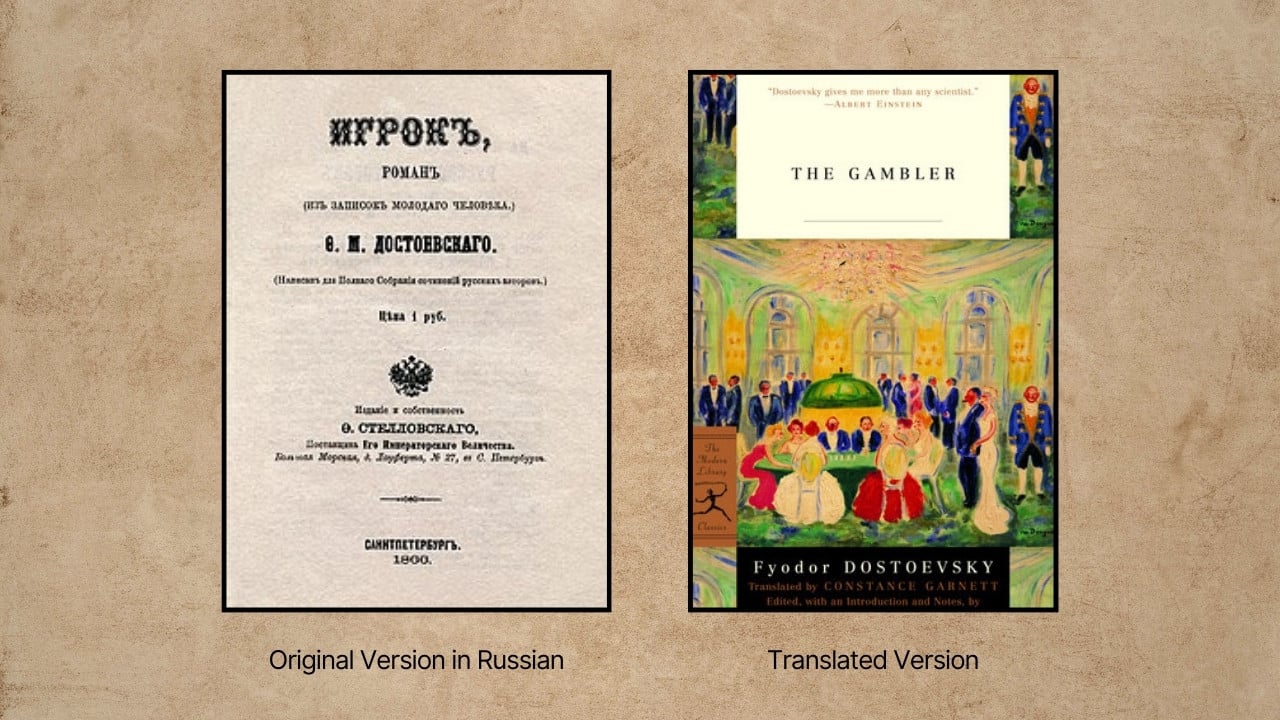
“Nothing could be more absurd than moral lessons at such a moment! Oh, self-satisfied people: with what proud self-satisfaction such babblers are ready to utter their pronouncements! If they only knew to what degree I myself understand all the loathsomeness of my present condition, they wouldn’t have the heart to teach me.”
― The Gambler
The Gambler is a semi-autobiographical novel that explores the addictive nature of gambling and its impact on the lives of the characters.
Through the story of Alexei Ivanovich, a young tutor in the service of a Russian general, Dostoevsky examines the allure of risk-taking and the destructive power of obsession. This work reflects Dostoevsky’s struggles with gambling and provides a vivid portrayal of the gambler’s psyche, solidifying its place among the best Fyodor Dostoevsky books.
8. Poor Folk
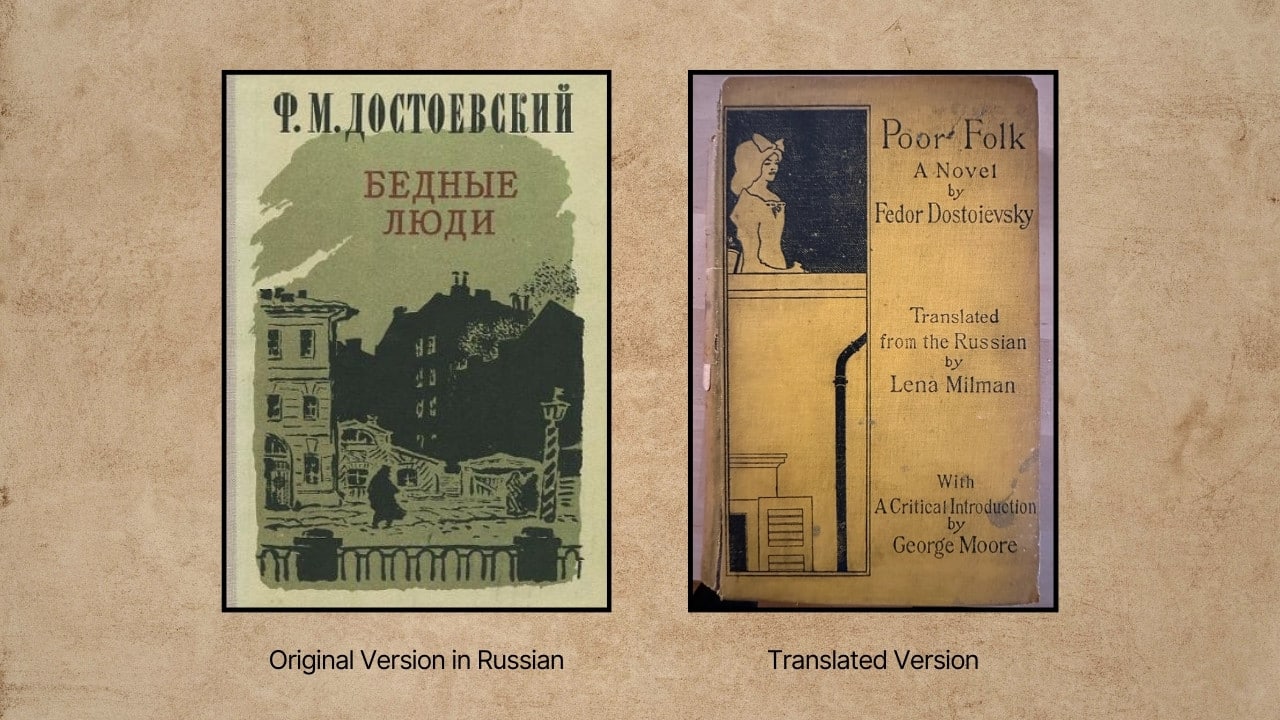
“My sweetheart! When I think of you, it’s as if I’m holding some healing balm to my sick soul, and although i suffer for you, I find that even suffering for you is easy.”
― Poor Folk
Poor Folk is Dostoevsky’s first novel, written in the form of letters exchanged between two impoverished individuals, Makar Devushkin and Varvara Dobroselova.
The novel presents a portrayal of the harsh realities of poverty. It highlights the importance of empathy and human connection in a world where people are often reduced to their social status. It’s an excellent introduction to Fyodor Dostoevsky’s novels for those interested in his early work.
9. The Double
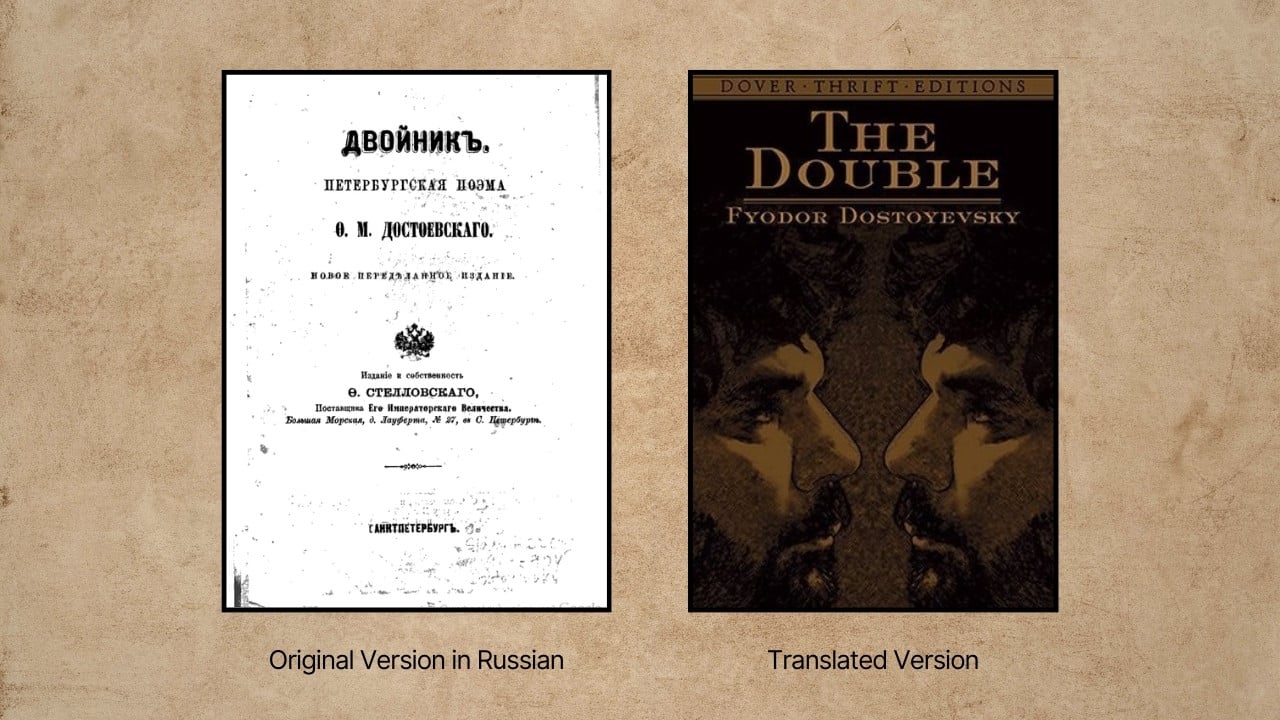
“The door from the next room suddenly opened with a timid, quiet creak, as if thus announcing the entrance of a very insignificant person…”
― The Double
In The Double, Dostoevsky explores themes of identity and self. The protagonist, Yakov Petrovich Golyadkin, encounters his doppelganger, who gradually begins to take over his life.
The novel explains the psychological turmoil of a man who feels increasingly powerless. It’s a powerful exploration of the loss of self and the struggle for autonomy in a world that seems indifferent to individual suffering. It is a must-read among the great novels of Dostoevsky.
Final Takeaways
Fyodor Dostoevsky’s works continue to captivate readers with their profound psychological insights and philosophical depth. Each novel offers a unique exploration of the human condition, challenging readers to reflect on the complexities of morality, identity, and existence.
From the best Fyodor Dostoevsky books to lesser-known works, his legacy transcends literature, offering timeless lessons on what it means to be human.
Also Checkout – The 6 Best Indian Movies Based On Novels
The post 9 Best Fyodor Dostoevsky Books – ‘The Idiot’, ‘Crime and Punishment’ And More… appeared first on RVCJ Media.
from RVCJ Media https://ift.tt/5AXkoM1

Post a Comment